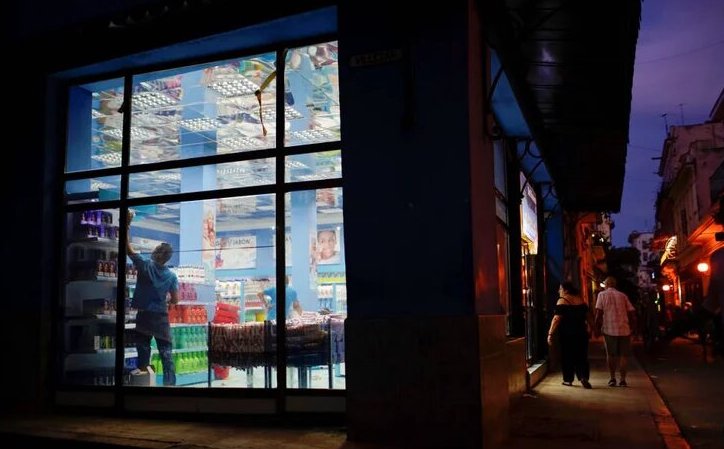Reports of crimes of an economic nature have taken on an unusual prominence in media controlled by the Cuban regime.
This trend reflects a clear strategy of terrorizing the population regarding such acts, mostly related to the deviation of products, hoarding, and marketing outside the scope of the law, while systematically violating the rights of the accused.
From both a legal and journalistic point of view, many red lines are crossed: interrogations of suspects at the "scene of the crime" are published, sometimes even their names, those of their parents, their home addresses, and their identity card numbers, are shown.
In a democratic country where there is a separation of powers the relationship between the media and the judicial system is very different, but in Cuba a particularly crude machine is employed that prosecutes citizens criminally and morally in order to teach others lessons.
Corruption and economic crime are nothing new in a country where people cannot live on their wages, and where resellers and "merchants" are not to blame for the shortage of products in state markets.
The journalist from the state television network Islavisión Yuliet Pérez published about this on her social networks: "if you gloat over doing 'journalistic work' in the 'trial or court' genre, knowing that it is unethical, and that there are legal mechanisms to prosecute these guys, and that trying them like this in public is really a second sanction, you are doing the same thing as them: profiting off the pandemic."
Nor are these defendants given the right to rebuttal, as the media are owned by the Communist Party of Cuba, and do not allow the slightest room for dissent or a variety of opinions.
Recently, Humberto López, the presenter of "Hacemos Cuba", one of the official television programs that most flagrantly engaged in these unscrupulous practices, tried to justify them by arguing on his Facebook account that: "Oral and public trials send a preventive and protective message to society. By resorting to collective shame, a clear signal is sent to those who violate the law and put others at risk."
Attorney Eloy Viera commented on this in a text published in Periodismo de Barrio: "There is no legal basis to justify the criminal reports filling the national press over the last week. They do not meet standards of ethics and serious journalism. But neither do they reflect the autonomous and independent exercise of the right to information and expression that must underpin the media's work."
For this reason Viera added "that makes them harmful material for those involved and for a society that continues to reproduce and accept attitudes towards police surveillance that are rewarded by these reports. An attitude revealing that in Cuba many still prefer to sacrifice the individual and his rights, rather than to look at and face the real cause of the problems that afflict him."
Meanwhile, Ricardo Ronquillo, president of UPEC, the only authorized journalistic union in the country, remarked, like someone living on another planet, that "the Cuban press system is really shining, offering clear signs of social responsibility, the ethical nature of the profession, its indeclinable vocation of public service, and an ability to respond to unforeseen events and requirements for innovation and change".
Evidently, Díaz-Canel's calls to act severely against those who violate the rules have been received as orders by a media system that diligently obeys those in power's directives, ignoring, without blushing, the most elementary principles of their profession.
As René Fidel González, PhD in Legal Sciences, wrote: "There is no manual, practice, or exercise of serious and ethical journalism that can excuse such outrages. We must rescue the rule of law in Cuba to so that it, at least, saves us from this conservative wave that regards arrogance, fatality and puerile a virtue."
